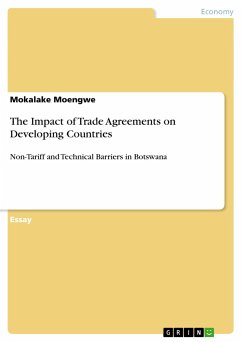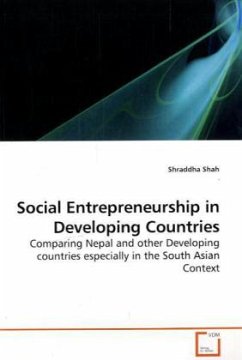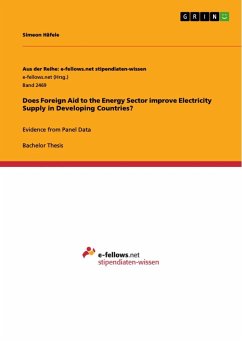
The Impact of Environmental Standards in Developing Countries
How consumers and industries shape the economic and ecological landscape of developing countries
Versandkostenfrei!
Versandfertig in 6-10 Tagen
32,99 €
inkl. MwSt.

PAYBACK Punkte
16 °P sammeln!
The author identified two key-trends to consider regarding the impact of environmental standards in developing countries: first, the high dependency of developing country economies on market access to developed country markets for their mostly agricultural exports; and second, the increasing global environmental awareness, expressing itself in proliferating Multilateral Environmental Agreements (MEAs) and the increasing importance of environmental characteristics, asked for by developed country consumers. In the first part of the book, the author analyzes the relevance of environment-related p...
The author identified two key-trends to consider regarding the impact of environmental standards in developing countries: first, the high dependency of developing country economies on market access to developed country markets for their mostly agricultural exports; and second, the increasing global environmental awareness, expressing itself in proliferating Multilateral Environmental Agreements (MEAs) and the increasing importance of environmental characteristics, asked for by developed country consumers. In the first part of the book, the author analyzes the relevance of environment-related product standards and product differentiation on the basis of a theory of consumption model. Subsequently, this leads to a discussion of controversies in international fora, surrounding the topic of standards and ecolabelling in the developing world. In the second part, the author takes up the issue of foreign direct investment and discusses the empirical foundation of the pollution haven theory.












